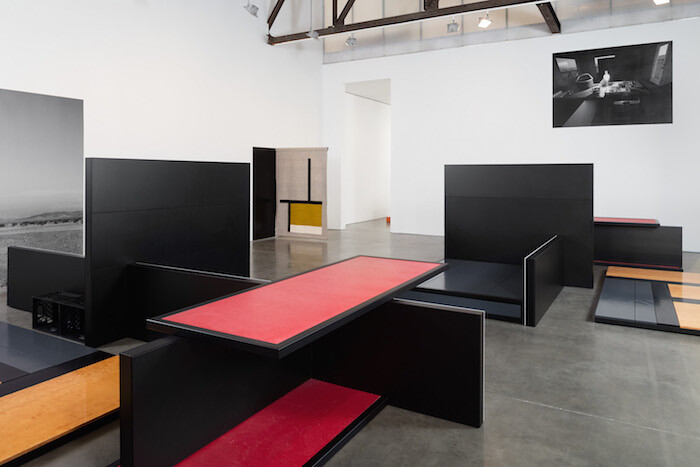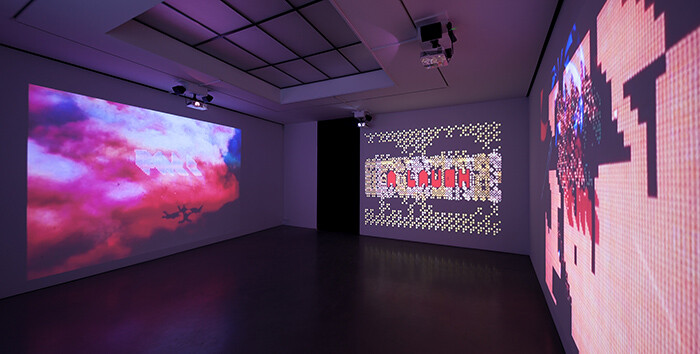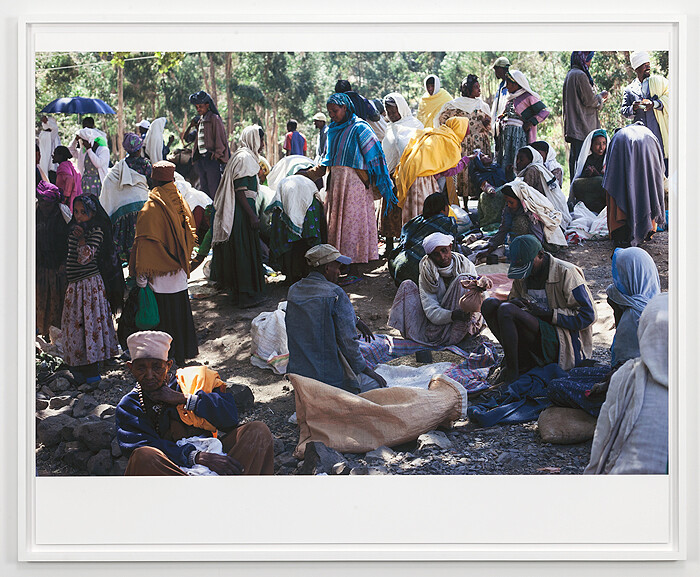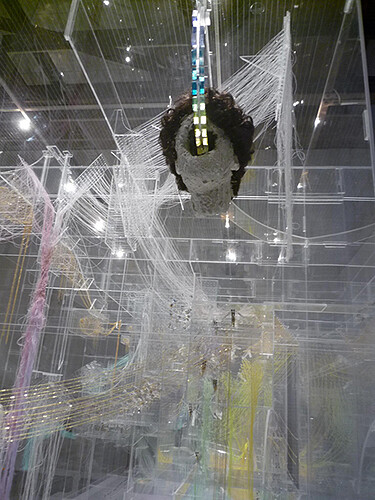Categories
Subjects
Authors
Artists
Venues
Locations
Calendar
Filter
Done
October 4, 2016 – Review
Andrea Zittel
Alan Gilbert

While driving through the Mojave Desert two hours east of Los Angeles in the area surrounding Joshua Tree National Monument, among the most striking aspects of the scrub-and-bleached landscape are abandoned wooden shacks that regularly punctuate the view. The majority are nothing more than weather-blasted frames with doors and windows gone. Most are the products of a Small Tract Act that lasted from 1938–1976, whereby the federal government sold small parcels of land for cheap to those who built structures on the property and made an effort to inhabit it. As the current vacancy rate shows, most denizens couldn’t maintain a viable existence in the unforgiving desert environs.
It’s to this area that Andrea Zittel moved from Brooklyn in 2000 to make an attempt at total living, which involves designing and building domestic and work spaces, producing clothes, growing food, and having greater agency over one’s social and cultural experiences—all of it done on a relatively small and sustainable level. Although since expanded to 50 acres, Zittel’s experiment is still dwarfed in comparison with, for instance, Donald Judd’s related project for the art of living in Marfa, Texas. (Of course, he initially had many more resources at his disposal.) A one-person …
June 16, 2015 – Review
Stan VanDerBeek
Leo Goldsmith

Words pulsate, then bleed into abstraction. Fields of color fragment into pixels or smear into mutating organisms. Swarming text grids explode into chaotic rainbow clouds, blinking dots, stars, and spirals. Snaking orange lines and pointillist textures form strobing mandalas, mosaic embroidery, and Pac Man architecture, tumbling geometries of throbbing color that dissolve into blue, pink, yellow, and green pixel noise.
Five of the eight Poemfield films that Stan VanDerBeek made between roughly 1966 and 1971 return to us now at a moment in which the technologies of computation and image-making have all but inextricably fused. This transition seemed only just underway when VanDerBeek died in 1984, and yet the works that he created in collaboration with programmer and physicist Ken Knowlton at Bell Laboratories in Murray Hill, New Jersey, and then further developed during an artist residency at MIT’s Center for Advanced Visual Studies, look ahead to a full integration of cinema with computer imaging, attesting both to the artist’s prescience and to his devotion to a deeply syncretic notion of media.
VanDerBeek is frequently cited as the originator of the terms “expanded cinema” and “underground film,” and while his name is most closely associated with these spheres, his body of work …
June 19, 2013 – Review
Wolfgang Tillmans’s “from Neue Welt”
Kevin McGarry

A frustrated Berliner recently posited Wolfgang Tillmans to me as the only example of a truly successful youngish artist living and working in the city. This is, of course, ludicrously far from accurate, but as hyperbole it illustrates something telling about the aura of the young-at-heart photographer who has been showing for more than twenty years now. For all his whimsical individualism, his gaze has long since evolved into an authoritative brand. His images are reliably one of the easiest places to experience that alchemical combination of subjectivity, nuance, and virtuosity to make you sigh happily and see their haphazard forms as more or less perfect.
Tillmans’s recent show at Andrea Rosen Gallery in Chelsea is called “from Neue Welt,” a selection of twenty-five photographs sifted from a much larger series amassed over the past four years, Neue Welt. More extensive samplings from Neue Welt have made the rounds in a string of museums internationally, and last year the collection was published as a book by the same name. Prepositionally nested as such, the title of the Rosen show becomes a double entendre, both for a gallery-scaled edit of the pre-existing exhibitions and for the more abstract notion of excerpts from …
April 22, 2011 – Review
David Altmejd at Andrea Rosen Gallery
Paddy Johnson

“Property itself has become a more social endeavor,” Wired Magazine co-founder Kevin Kelly wrote three years ago. The now famed blog post describes the dematerialization of raw materials and other saleable objects as a social phenomenon, citing shared music, books, and movies, as among the goods on their way out. Instead, they will all be part of “the cloud,” a vast digital network accessible via tax or subscription.
It’s hard not to think about this concept at David Altmejd’s current exhibition at Andrea Rosen—a visual interpretation of the decentralization and dematerialization we are currently witnessing. Nearly every figurative sculpture and vitrine in the show suggests dispersion, a mass of complicated networks and slow decomposition of substance. This result isn’t always particularly compelling or resolved—Altmejd too frequently fails to account for the viewer’s experience—but the show has a few highlights regardless.
Even from the gallery’s entrance we are told the show is about the freedoms afforded by re-distribution and re-constitution. A winged figurative sculpture made of plaster graces gallery’s entrance, apparently fashioned from the materials in the gallery walls. Altmejd’s transformation of materials is so complete it’s impossible to know this without reading the press release, but it’s clear the wall dirt, unencumbered …
